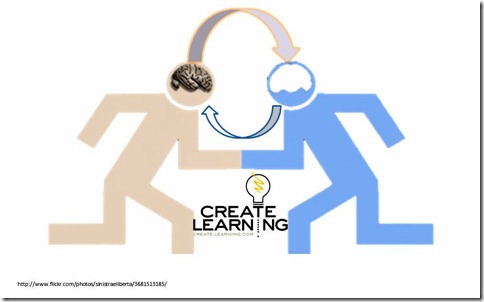An earlier post listed the 7 Principles of Leadership Development in no specific order of importance:
- Necessary Skilled-Knowledge
- Selection
- Using Existing Employees as Mentors
- Education for Leadership
- Strategy for Leadership Development
- The Chief Executive
- The Chance to Lead
Exploring lessons learned and how an organization and I developed a leadership development process for high potential employees.
Managers as Mentors
Now that we have an idea of the needed skilled-knowledge and selected who should be involved in the leadership development process; our planning turned to long term implementation and creating a community of mentors that can serve as guides for the high potential managers and employees.
Using existing managers, who are ‘in the trenches’ as mentors creates trust in the organization, leadership and the participants.
What is a mentor?
Mentoring: Discussions by someone who knows the work and has access to resources and knowledge that are helpful to a person in a role within the organization. Working with that person in their role to understand their potential and how that potential might be developed to achieve as full career growth in the organization as possible.
We asked ourselves to look back at our careers.
- Can you identify anyone you worked for who found time for you as an individual?
- Who showed interest in helping you to grow as a leader, and shared their experience with you?
Developing a mentoring process with existing managers is a way to create discussion a shared language of work between the leaders being developed and those that are already doing the work. Bringing the leadership development to a pragmatic level placing the focus on what matters; Seeing the work get done and having the opportunity to ask questions, and have someone with skilled-knowledge answer those questions.
Working with the leadership development planning team we decided to look within the organization and persuade managers and high performing people to operate as these internal mentors.
How did we do that?
- We did some work and discovered 10 to 15 people who were involved in the level of work that those in the leadership development process would eventually work. We found people who were, a) as busy as anyone else, and b) still find time to grow and develop their staff and others in the team, while c) others go to them for advice and find they add value to their work.
- We organized a two-hour meeting for the leadership development participants and the mentors, over a shared dinner. The chosen mentors shared why they believe supporting others and adding value to others work it important and how they personally go about it. Then an open discussion.
- We invited a peer from another company that has successfully created mentor matches for high-potential employees, and he shared what worked and some stories from his company.
- The Leadership-Development committee shared their role is to ensure that the organization maximizes every bit of the potential of its people at every level. Pointing out that they cannot do this themselves, they are counting on the managers-as-mentors and everyone in the room to play their part.
What are the mentor-mentee responsibilities?
Each individual mentor and the employee in the leadership development process were asked to work together and meet through the skilled-knowledge development and training.
Here is an idea we shared with the mentors:
- Set up time to meet and update each other of what is needed, expected and areas for development. There will always be intentions and expected benefits from the classes and coaching being offered. Overall the mentor should convey the importance / worthwhileness of becoming a better leader – it is a chance to keep the enthusiasm through the process.
- After each section of the skilled-knowledge meet one-on-one and discuss: a) What has been learned? b) How do you intend to apply it in your team context? c) How can I help you? d) What wider lessons did you learn which might benefit the department or company? e) What more training do you need?
- Three months later check on the progress and give some further encouragement, the initial excitement can fade without focus and continued development.
- Update Mike and the Leadership-Development committee with some feedback on the value of the skilled-knowledge and how they saw it being applied.
‘To lead is to serve’ Part of your service is to help your team grow, both as a group and as individuals; this will not happen if you don’t find time to spend with them individually. As the Japanese proverb has it, ‘if he works for you, you work for him.’ – John Adair
Armed now with the needed Skilled-Knowledge, Selection Process, and Managers as Mentors for the ~150 potential managerial-leaders, we kept on focusing on what is working and what the next steps will be…
What do you think?
Who has served as a mentor in your career? What makes a successful mentor process in a leadership-development program?
Reference: John Adair; How to Grow Leaders


